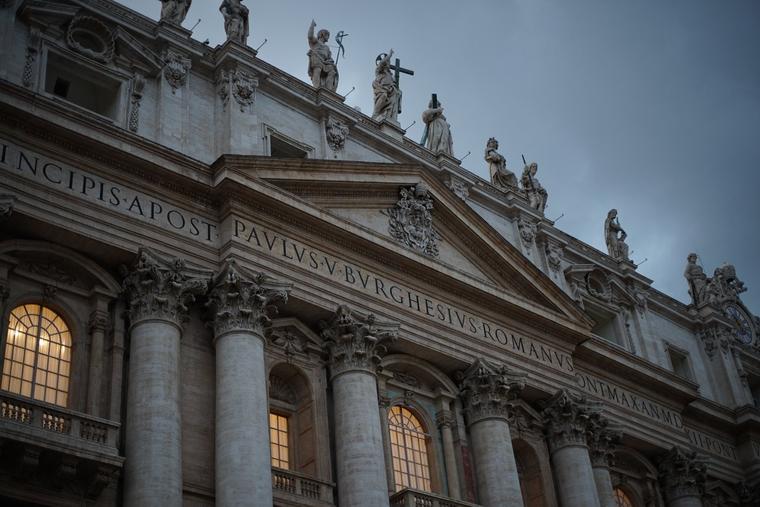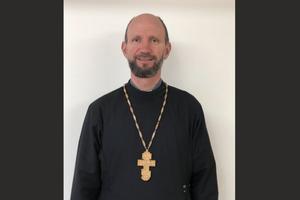Synod on Synodality: ‘Experts and Facilitators’ Include Controversial Figures — Who Could Play Major Role?
NEWS ANALYSIS: They don’t have a vote, but the group of 62 could influence proceedings through regulating discussion and amplifying preferred viewpoints.

VATICAN CITY — As the universal Church prepares for the first portion of a two-part Synod on Synodality, significant attention has been paid to new kinds of participants in a Synod of Bishops, particularly the inclusion of a sizable contingent of non-bishops among the voting members.
But far less attention has been given to another novel group that will be participating in the Oct. 4-29 synodal gathering: “facilitators,” part of a larger group of non-voting experts, who include several figures with controversial views and could have a major impact on the synod’s proceedings and its final outcomes.
The inclusion of the novel group was confirmed as far back as April, when Cardinal Mario Grech, the general secretary of the synod office, said non-voting facilitators would be included, after earlier stages of the synodal process had shown that “the presence of experts can create a fruitful dynamic.”
Cardinal Jean-Claude Hollerich of Luxembourg, who as relator general of the upcoming synod will play a major role in guiding proceedings, added that there was a need for people devoted to facilitating “the spiritual dimension” because “there are bishops who have never participated in a synod.”
Following the addition of new participants announced by the Vatican on Sept. 21, a total of 62 “experts/facilitators” are slated to participate in the October synod, about one for every six voting members.
An “FAQ” from the synod secretariat describes experts as “people who are competent in various capacities on the subject under discussion,” and the 2018 apostolic constitution on the Synod of Bishops promulgated by Pope Francis, Episcopalis Communio, states that their role is to “help with the redaction of documents.” In a press kit released alongside the list of participants, the synod secretariat described the role of facilitators, a subset of experts, as “facilitating the exchange in working groups (small circles).”
In a corresponding change, the upcoming synod proceedings won’t be held in the Vatican’s synod hall, but in the larger Pope Paul VI audience hall, which can accommodate a shift from audience-style seating to roundtable discussions.
The work of the experts and facilitators will be coordinated by the synod’s special secretaries, Jesuit Father Giacomo Costa — who played a similar role in the 2018 Synod on the Youth, where it was suggested that he “engineered” the final synod text — and Father Riccardo Battochio. Both priests will work under the direction of Cardinal Hollerich, whose leadership role in the synod has been criticized over his public remarks that the Church’s teaching on sexuality is false.
The Vatican has not actually distinguished which of the 62 people listed under “experts/facilitators” are specifically facilitators, though assuming that the 360 or so voting members will be divided into tables of 10, for instance, suggests that more than half of the 62 will be facilitators.
‘Synod Sherpa’
The Vatican has not said much else about the specifics of what experts and facilitators will be doing during the Oct. 4-29 synodal assembly — but some members of the group have disclosed further information.
Jesuit Father David McCallum said that as a facilitator he will act as a kind of “synod sherpa,” guiding small-group discussions and “holding space” for open conversations that he expects to be a place where “really strong tensions emerge.”
“The space has to be hospitable and open to marginalized voices, for people who feel their experience has not been heard and welcome in the Church,” said Father McCallum, who directs the Discerning Leadership Program, which was founded in 2019 to provide formation in a synodal style of leadership and has apparently offered training to other synod facilitators. “To make that a fact and not an intention is of critical importance.”
Given the role facilitators seem set to play in regulating discussion and representing the views of synod participants, and that experts will play in redacting (editing) of synodal documents, many might expect qualities like balance and impartiality to characterize the participating individuals and the contingent as a whole.
Yet certain groups appear to be disproportionately represented among the experts and facilitators.
Nearly half, or 30 of the 62 experts/facilitators, come from Europe, including 12 Italians, five Frenchmen and three Spaniards. By comparison, there are only four experts/facilitators from all of Africa, despite the fact that the Catholic population on that continent is nearly equivalent to Europe’s — not the only instance of synod participation levels seemingly being imbalanced in favor of Western nations.
Another demographic possibly over-represented among experts/facilitators are Jesuit priests, who make up 2.5% of all priests worldwide yet account for 13% (eight of 62) of the group.
Controversial Figures
Additionally, among the experts/facilitators are a number of figures who have publicly expressed strong support for controversial positions that some fear the synod is being used to advance. These figures include:
- Father Philippe Bordeyne, president of the reoriented John Paul II Pontifical Theological Institute for Marriage and Family Sciences in Rome, who advocates for a form of liturgical blessings of same-sex couples.
- Thomas Söding, a major proponent of the German Synodal Way, who has hopes for women’s ordination, actively promotes the blessing of same-sex unions, and says the link between priesthood and mandatory celibacy is arbitrary.
- Australian Father Ormond Rush, who has called for a particular understanding of “inverting the pyramid” of Church governance, an ecclesiology that has been cited by others as a necessary step for the Church to take “LGBTQ+ inclusive” positions, such as approving “gender-affirming care” and adoptions by same-sex couples.
- Jesuit Father Adelson Araújo dos Santos, a Brazilian theologian who teaches at the Gregorian in Rome and advocates for the end of mandatory priestly celibacy.
- Capuchin Sister Daniela Cannavina, an Argentinian who was vocal in her support for women deacons during the 2019 Synod on the Amazon.
- Father Agenor Brighenti, a Brazilian liberation theologian who has said that ordained ministries in the Church must change “because they are in line with a very hierarchical, pyramidal conception of the Church” and has said women must have unrestricted access to ministries, including ordained ministry.
- French Sister Christina Danel, the superior general of the Congregation of Xavières, who “preached” during a Mass in 2021, a violation of liturgical norms, and has said that opening up the ministry of preaching to the laity “could respond to a strong need today to have a plurality of voices in the Church and a different view of the word of God than that of the priest.”
- And papal biographer Austen Ivereigh, the author of How to Defend the Faith Without Raising Your Voice, who in more recent years has employed a confrontational style of online engagement with other Catholics who disagree with his views, such as that the Catechism’s language that homosexual attraction is “intrinsically disordered” has been “officially junked.”
If, as Father McCallum indicated, facilitators are to be “hospitable and open to marginalized voices,” a given facilitator’s understanding of what exactly constitutes unjust marginalization could significantly influence how he or she guides a group’s conversation. For instance, a facilitator who views the fact that same-sex relations cannot be blessed or that the Church cannot sacramentally ordain women as unjust instances of exclusion seems likely to amplify voices arguing against those positions.
Potential Impact
Experts and facilitators won’t be voting — but given facilitators’ regulatory role of the conversational flow of “small circle” discussions and experts’ redacting role in final documents, both could have a significant impact on what voices or themes are amplified at the synod.
While previous small groups at synods have included a moderator and a secretary who, respectively, guided the discussion and prepared a summary for the wider assembly, it seems reasonable to assume that facilitators will be performing both of these duties, especially with the specific governing rules of the assembly (the Ordo Synodi) still left unpublished.
The role of these figures could be especially significant if, as Cardinal Grech has previously suggested, approval of any concluding synodal document is not actually put to a vote, a procedure that he said at the opening of the synod process could “risk transforming the synodal assembly into a parliament, introducing the logic of the majority and the minority into the Church.”
Indicating the possibility that synod documents might not be voted on by the entire assembly, the secretary-general of the synod asked rhetorically in October 2021 whether “it is so impossible to imagine, for example, resorting to voting on the Final Document and its individual numbers only when consensus is not certain. Isn’t it enough to foresee motivated objections to the text, perhaps signed by a suitable number of members of the assembly, resolved with an additional discussion, and to resort to the vote as the last and undesired instance?”
Added all together, a scenario could play out in which “non-voting” members exert significant influence upon any documents that attempt to summarize the views expressed during the synod — which, in turn, are not straightforwardly voted on by voting members.
The role of experts and facilitators could end up far more muted than the above analysis suggests. But unless and until the synod’s office publishes rules and regulations to the contrary, questions and concerns about the influence of this group of non-voting members on the entire process are likely to remain.















